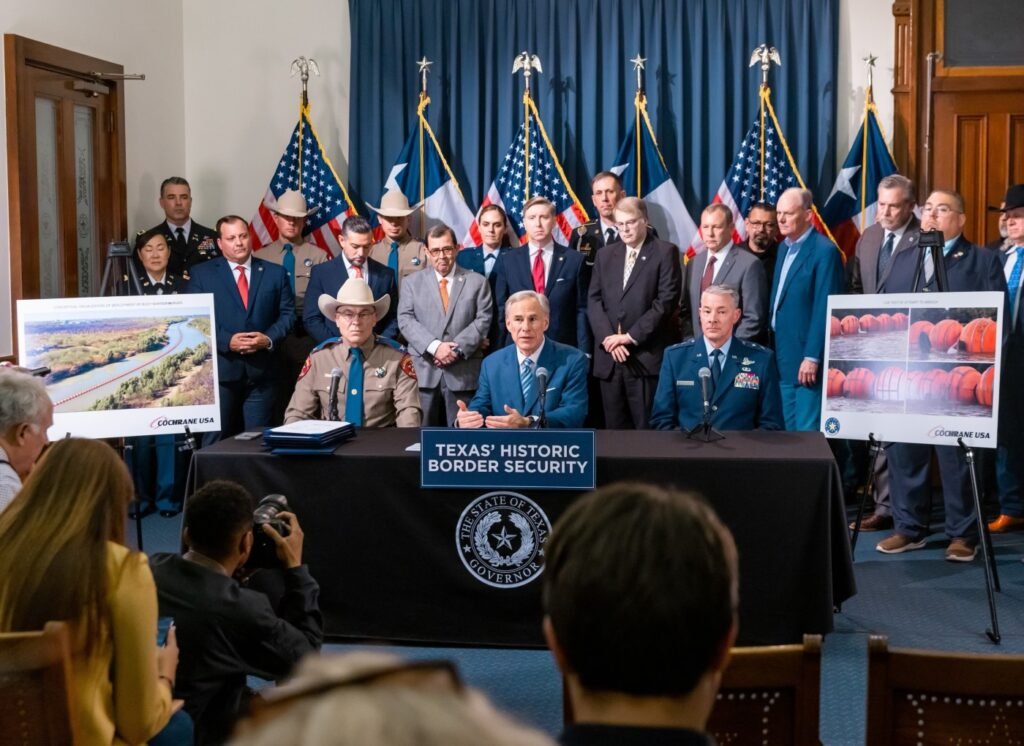In a country shaped by the ongoing debate on immigration policy, Governor Greg Abbott’s immigration bills may shift the immigration issue from the federal court to state courts. This change could bring the authority to issue deportation orders from the federal government down to state judges. These new bills are described as the harshest state immigration laws in recent years. Texas Governor Greg Abbott visited the Rio Grande Valley, marking a pivotal moment in the ongoing battle against illegal immigration. During his visit, he signed three bills into law to strengthen efforts at the Texas-Mexico border and endow state law enforcement with greater authority. The primary points of Senate Bills 3 and 4 are financial allocations towards border security and increased legal measures for felons, sparking debates on the passage of the bills on constitutional grounds.
Furthering Border Security
One of the main aims of the bills is to increase border security and prevent illegal immigrants from crossing the border. The bills would allocate $1.54 billion in state funds to construct barriers along the expansive Texas-Mexico border. Additionally, the bill allocates up to $40 million for state troopers to guard the Colony Ridge, as there were a myriad of claims of the area acting as a magnet for undocumented immigrants.
Increasing Consequences
If SB4 were passed, illegally crossing the Texas-Mexico border would become a state crime. It would make the action a Class B misdemeanor with consequences of up to six months in jail. Additionally, repeat offenders could face a second-degree felony with a sentence of up to twenty years. The bills not only criminalize border crossing but also increase the minimum sentence for smuggling immigrants from two to ten years. Most actionable items in these bills will be executed in early March 2024, with the human smuggling law implemented in early February.
Advocacy Groups and Constitutionality
El Paso County and two immigrant rights groups have filed lawsuits against the Senate bills. Critics of the bills, including immigrant advocacy groups and democrats, are concerned with its constitutionality. They argue that immigration enforcement should remain within the federal domain as it has been, as seen by previous federal court rulings. Additionally, it’s also argued that it encourages racial profiling. Legal authorities speculate that the lawsuit will possibly reach the U.S. Supreme Court. Abbott defends the law, stating that it is a necessary response to the Biden administration’s perceived failure to address ongoing border challenges.
Works Cited
García, Uriel J. “Gov. Greg Abbott Signs Bill Making Illegal Immigration a State Crime.” The Texas Tribune, 18 Dec. 2023, www.texastribune.org/2023/12/18/texas-governor-abbott-bills-border-wall-illegal-entry-crime-sb3-sb4/.
Goodman, J. David. “Abbott Signs Law Allowing Texas to Arrest Migrants, Setting up Federal Showdown.” The New York Times, 18 Dec. 2023, www.nytimes.com/2023/12/18/us/abbott-texas-border-law-arrests.html.
Montoya-Galvez, Camilo . “Texas Immigration Law Known as SB4, Allowing State to Arrest Migrants, Signed by Gov. Greg Abbott – CBS News.” Www.cbsnews.com, 19 Dec. 2023, www.cbsnews.com/news/texas-immigration-law-sb4-signed-greg-abbott/.
Richards, Zoë . “Texas Gov. Greg Abbott Signs Bill Letting Police Arrest Migrants Who Cross the Border Illegally.” NBC News, 19 Dec. 2023, www.nbcnews.com/politics/immigration/greg-abbott-signs-texas-bill-letting-police-arrest-migrants-cross-bord-rcna130347.
